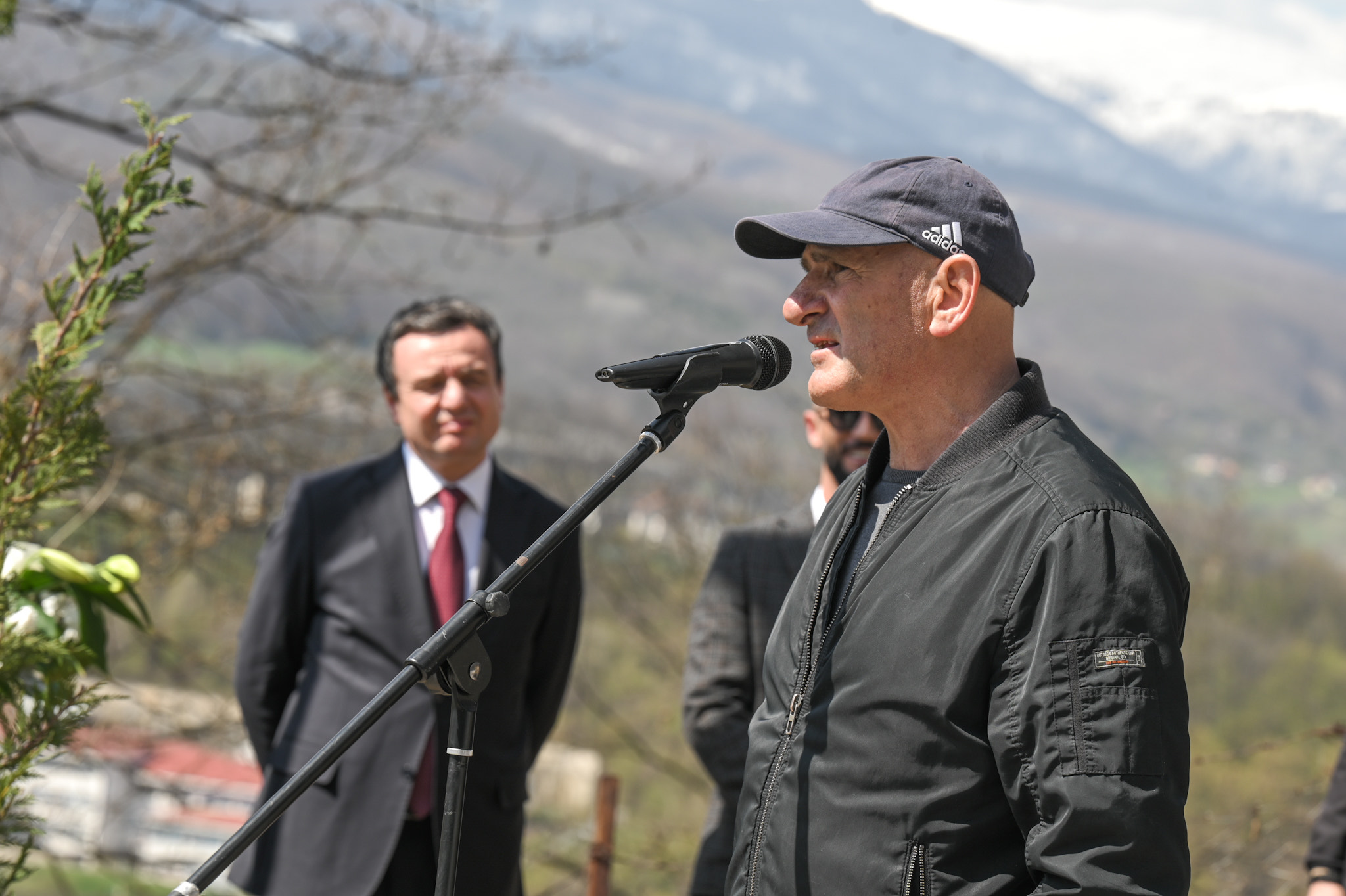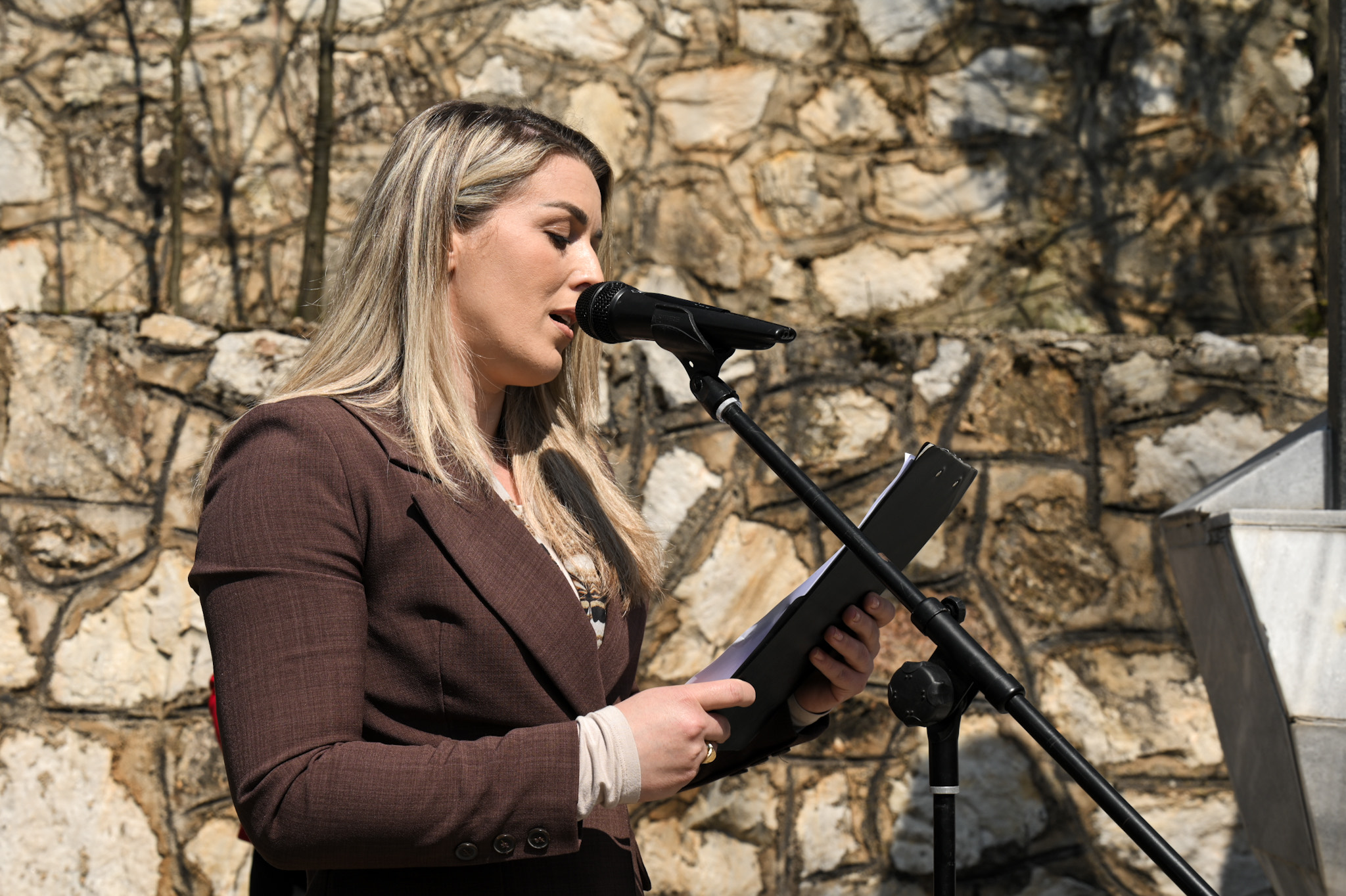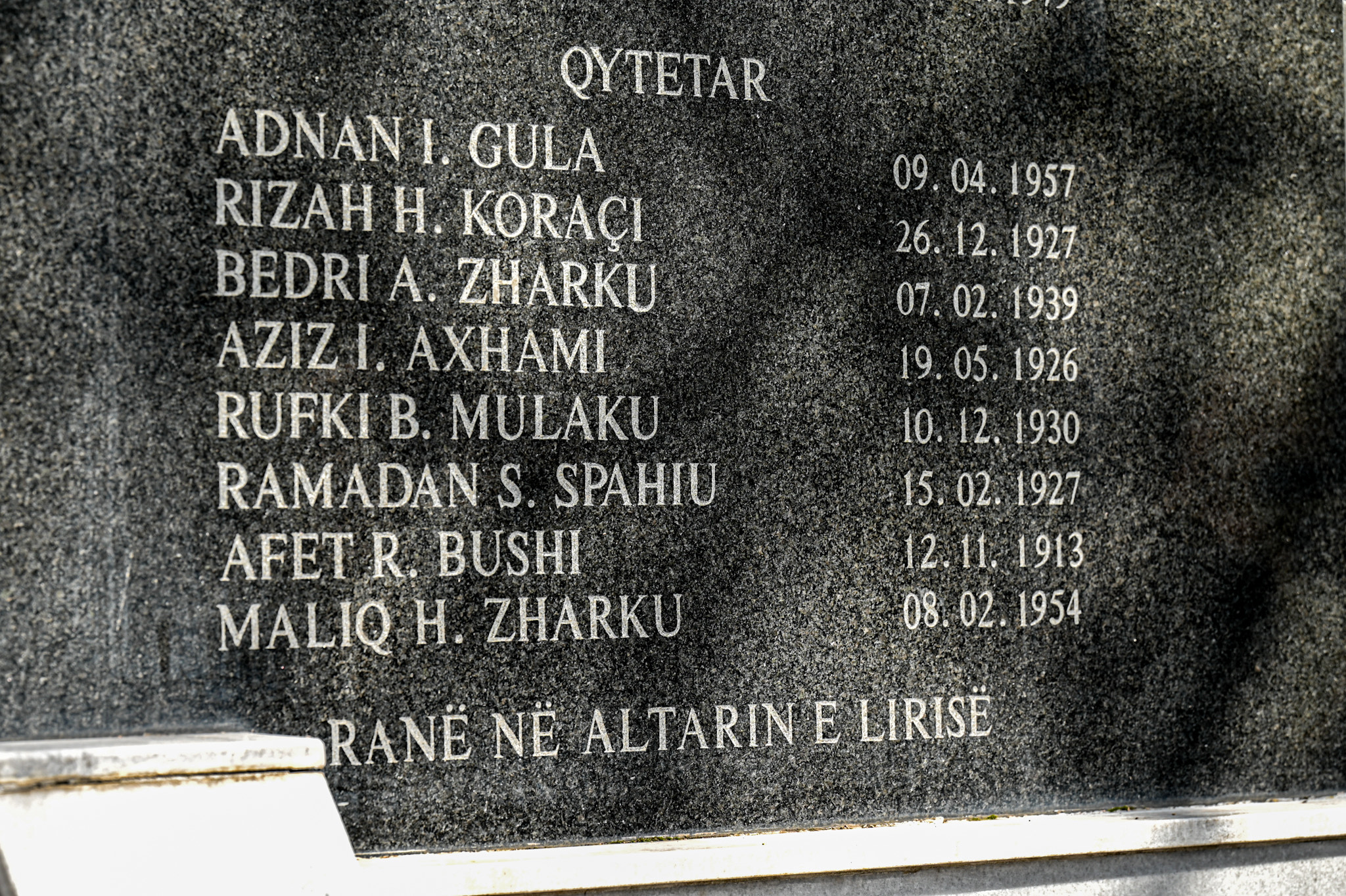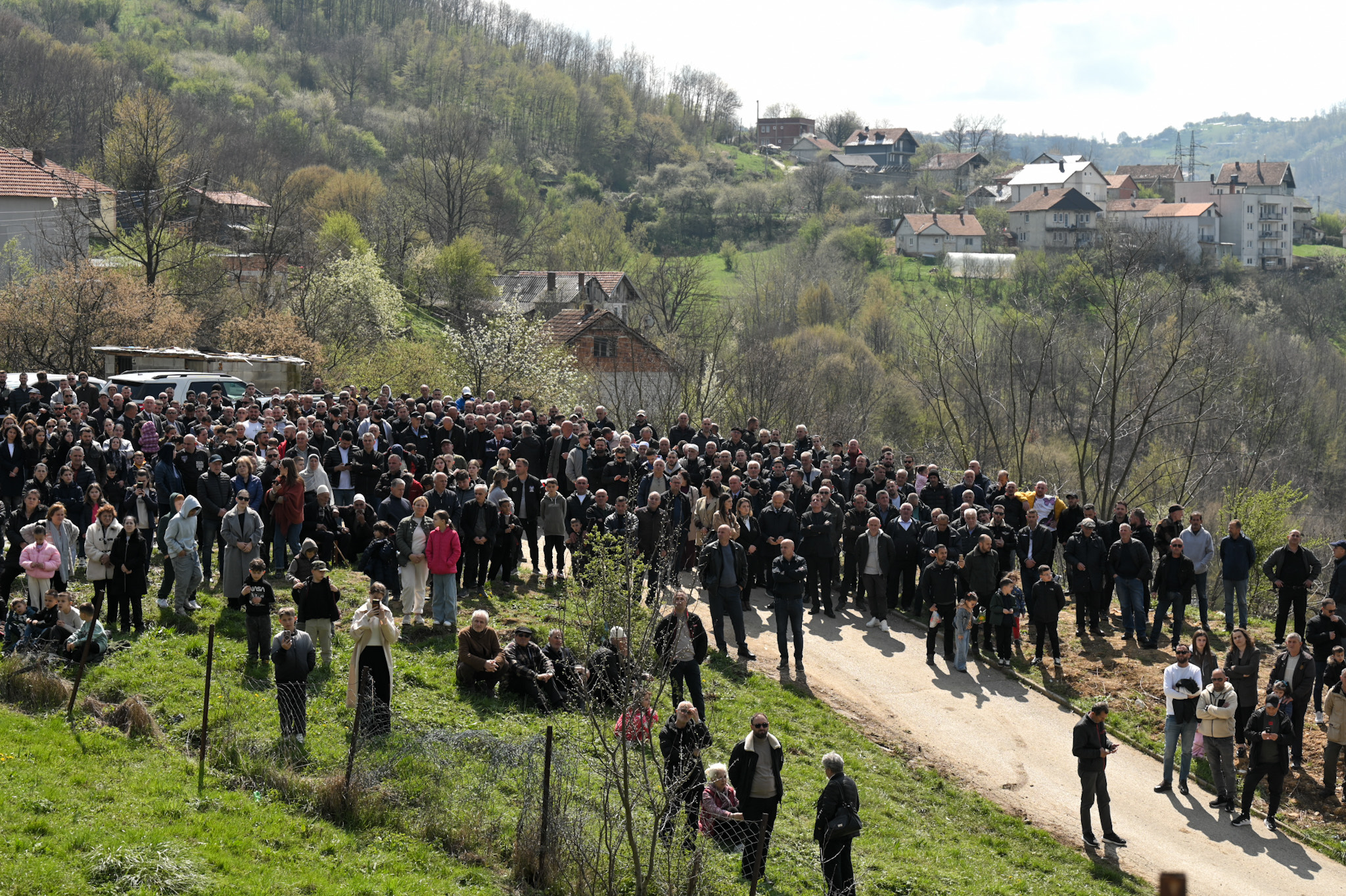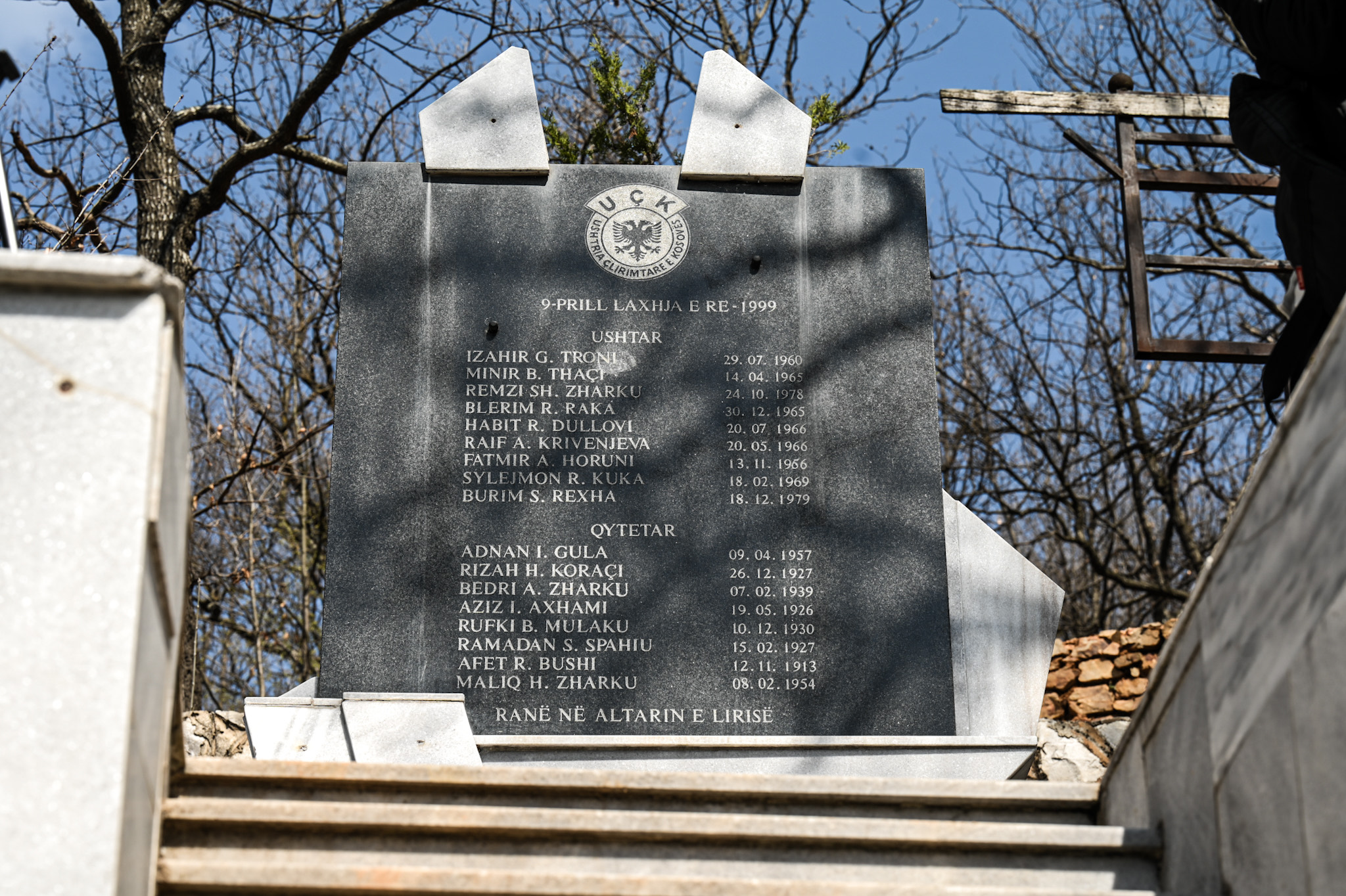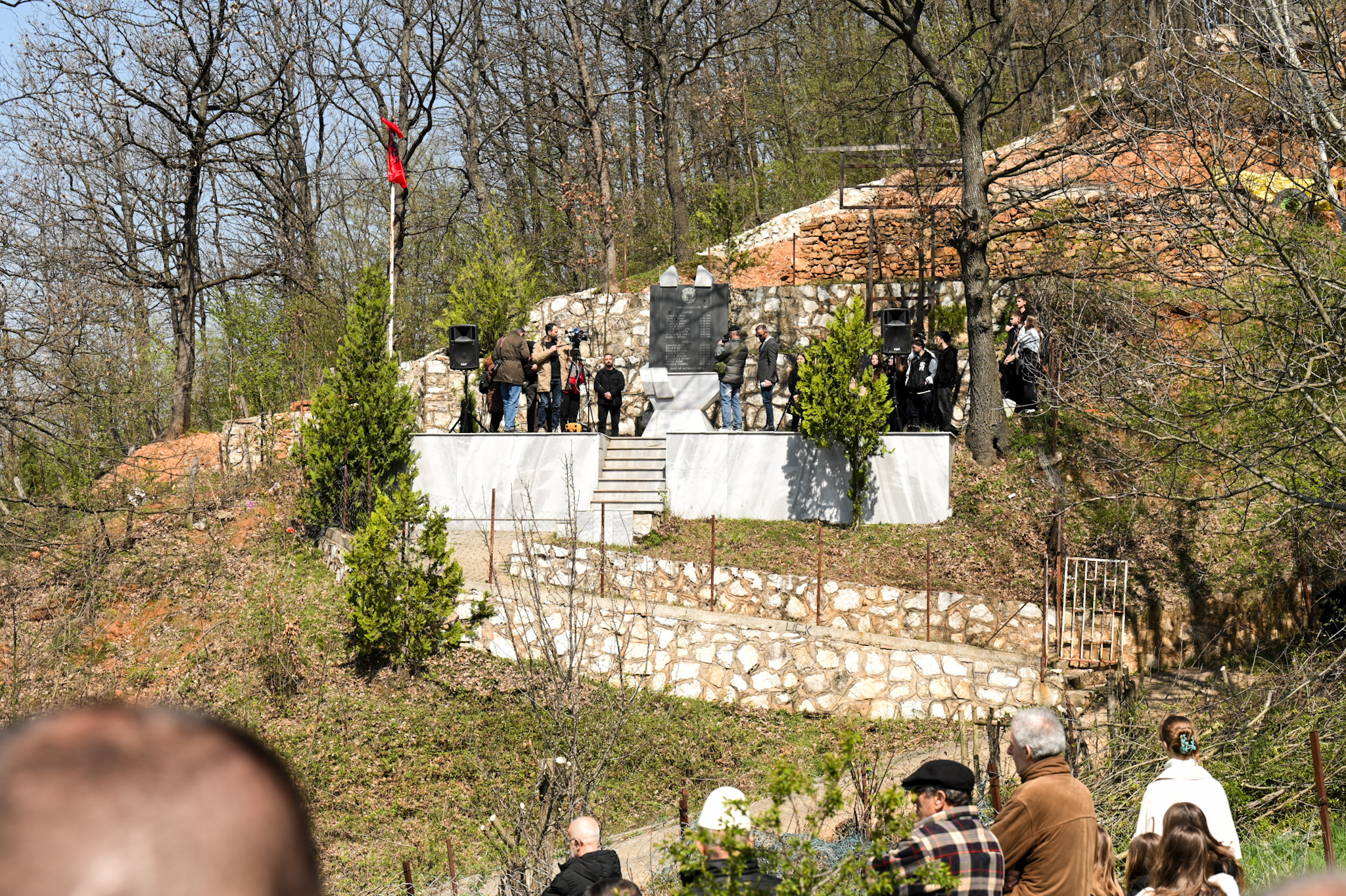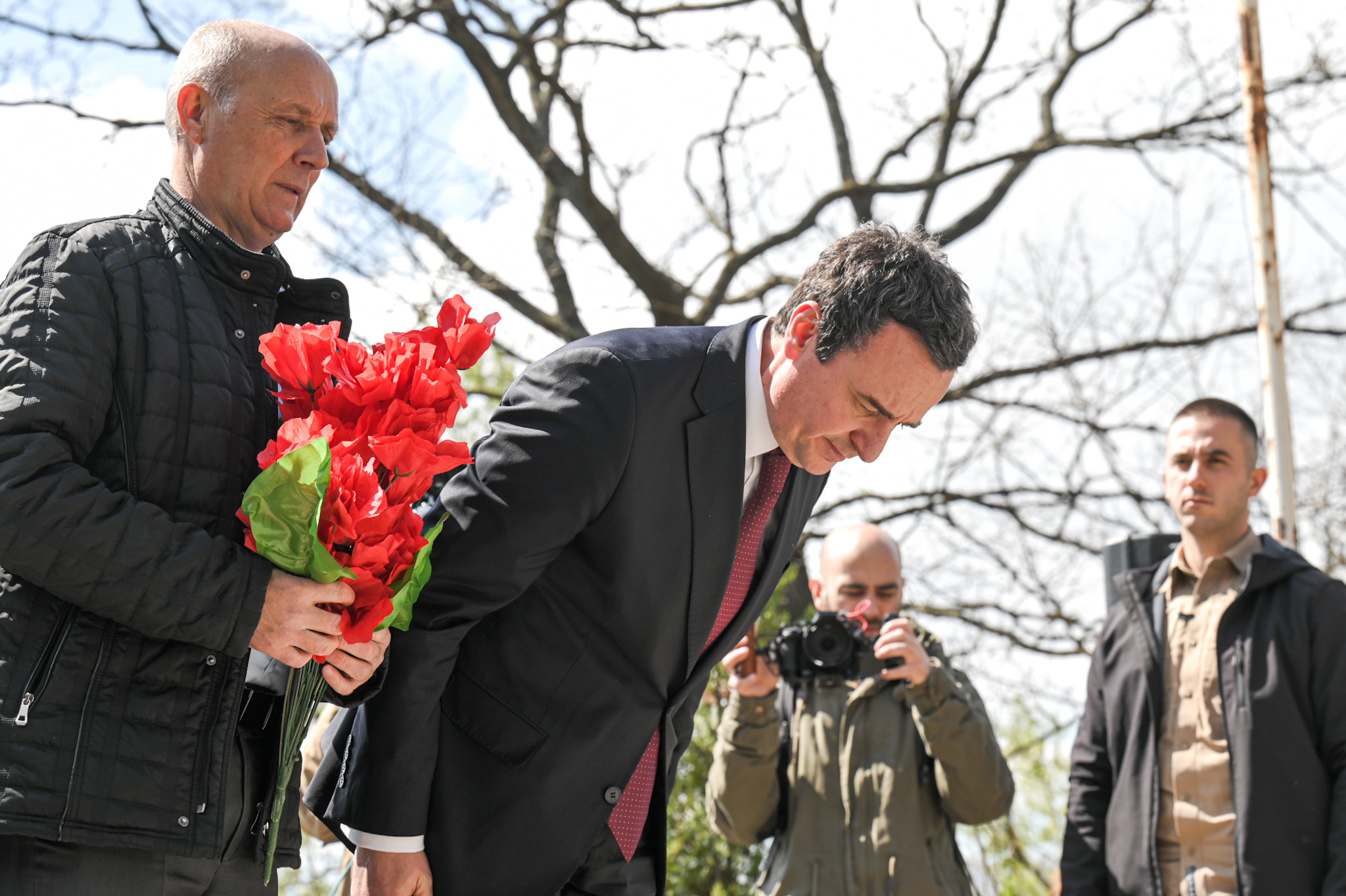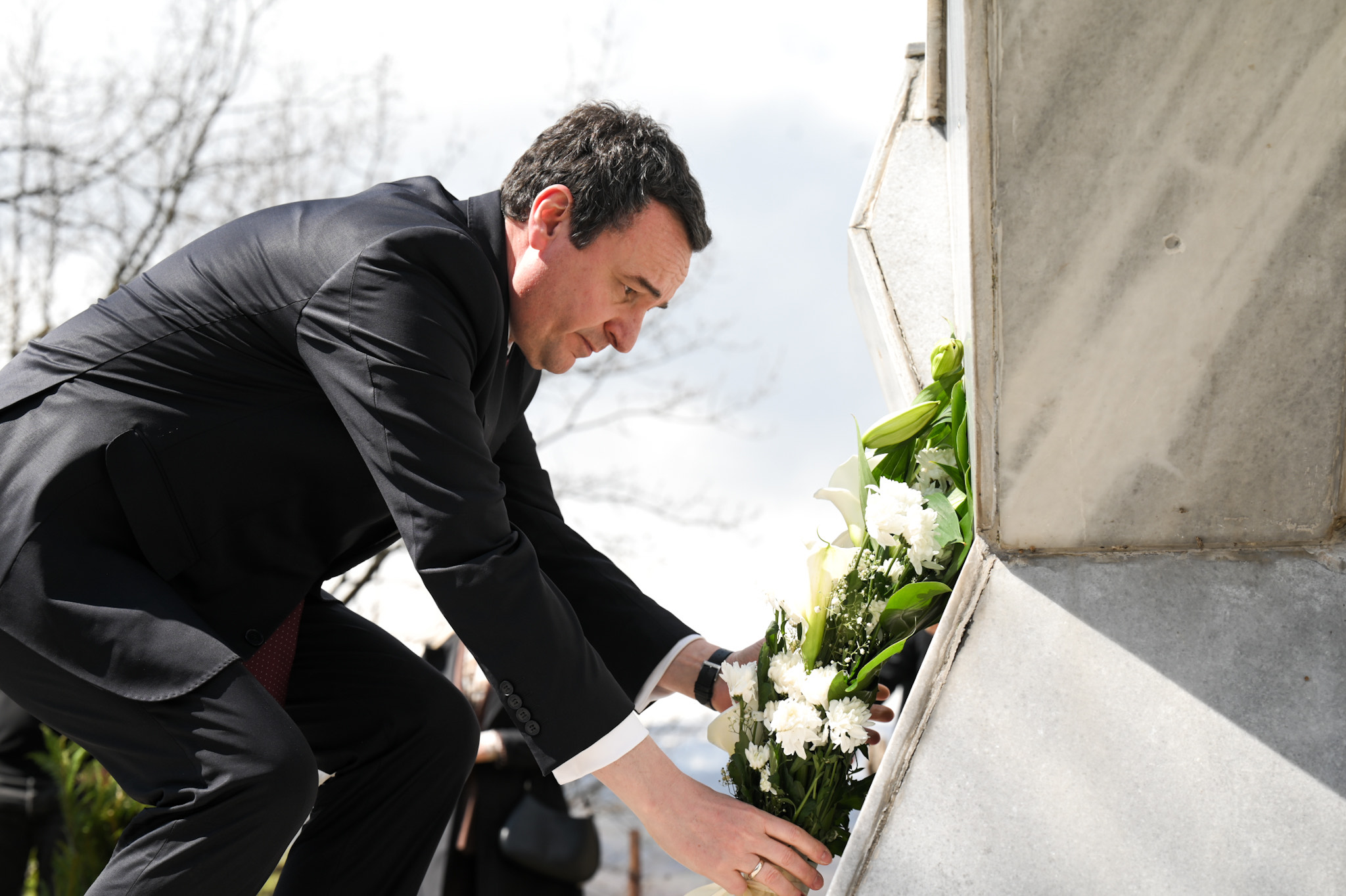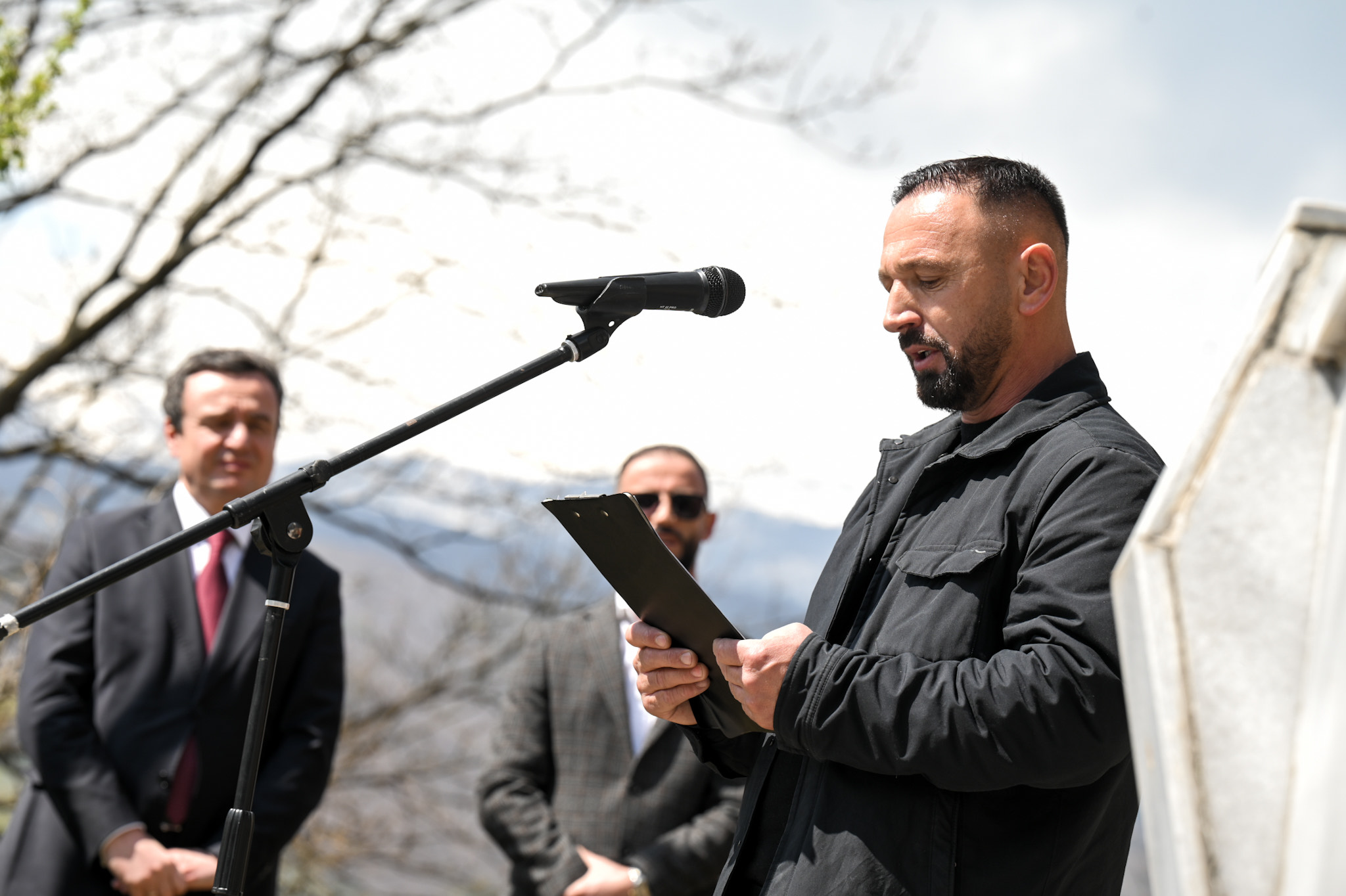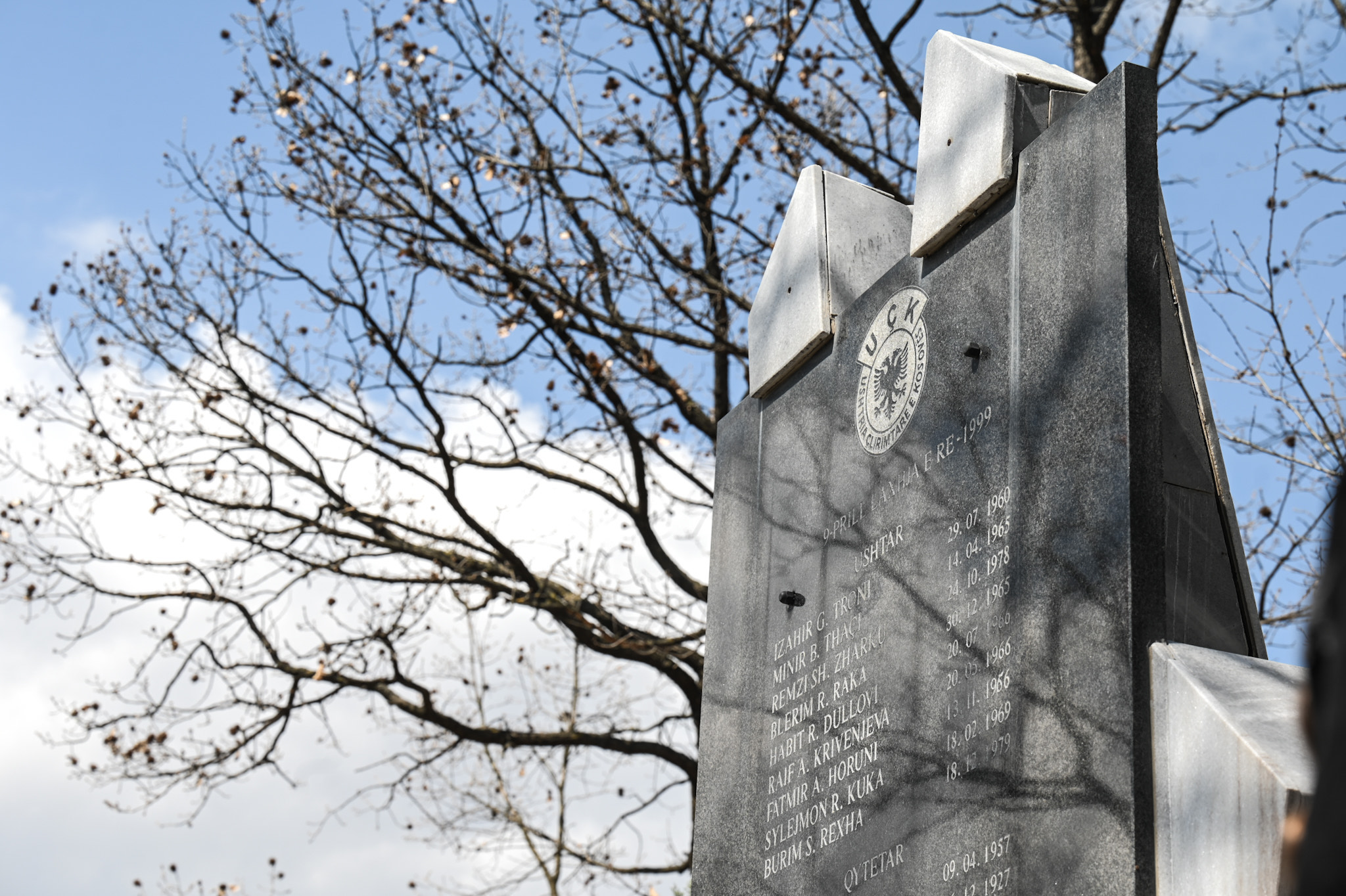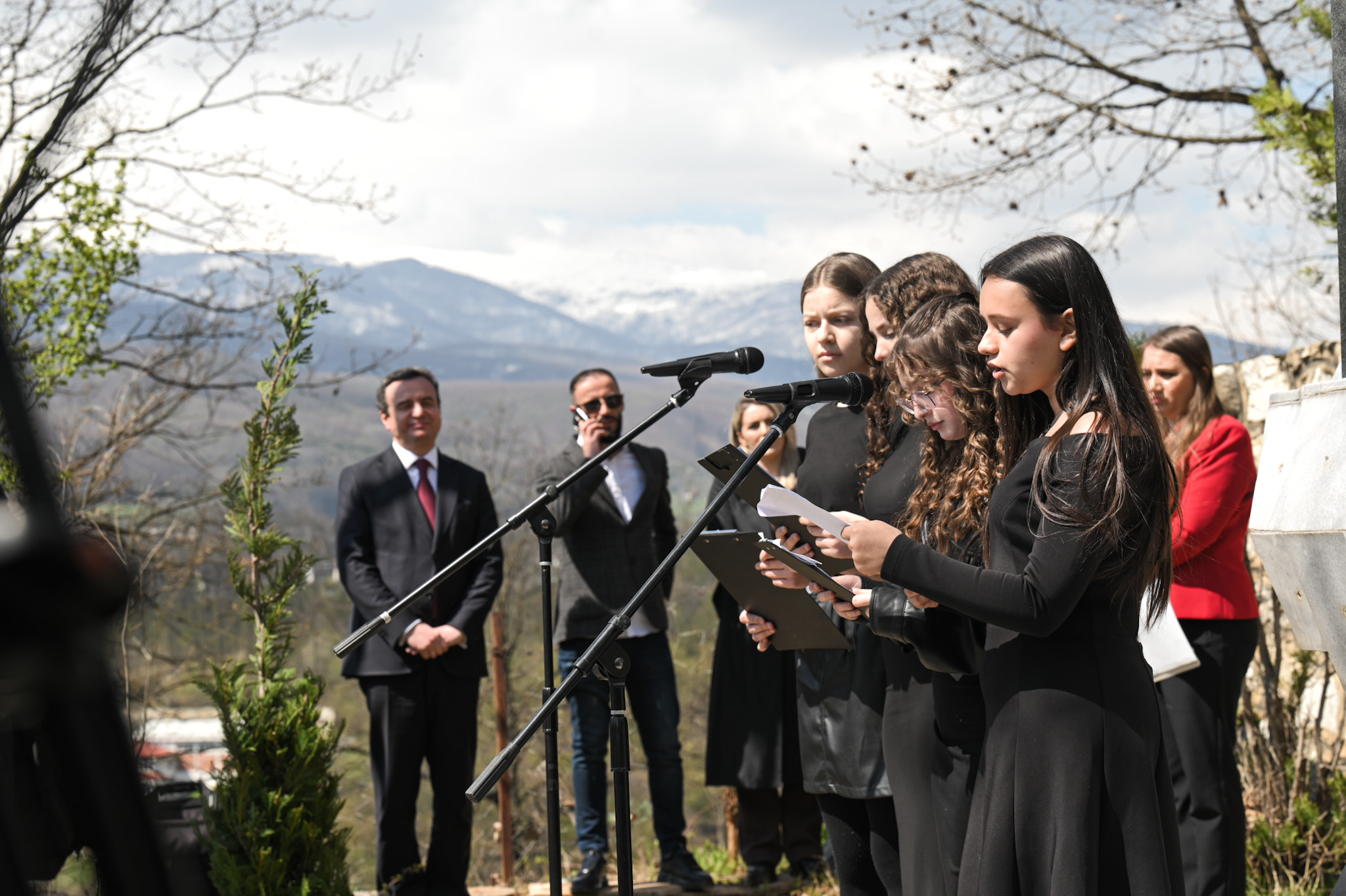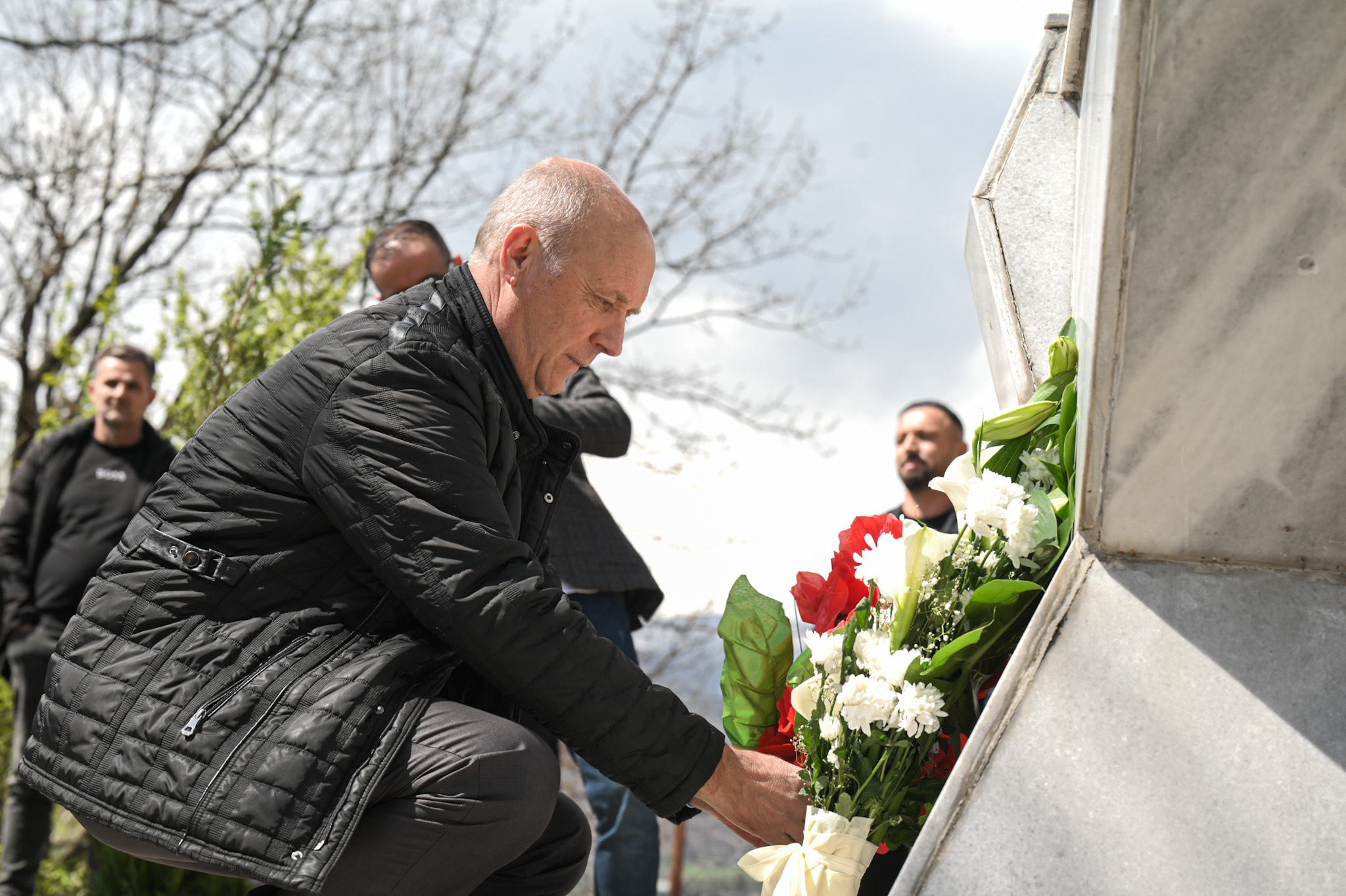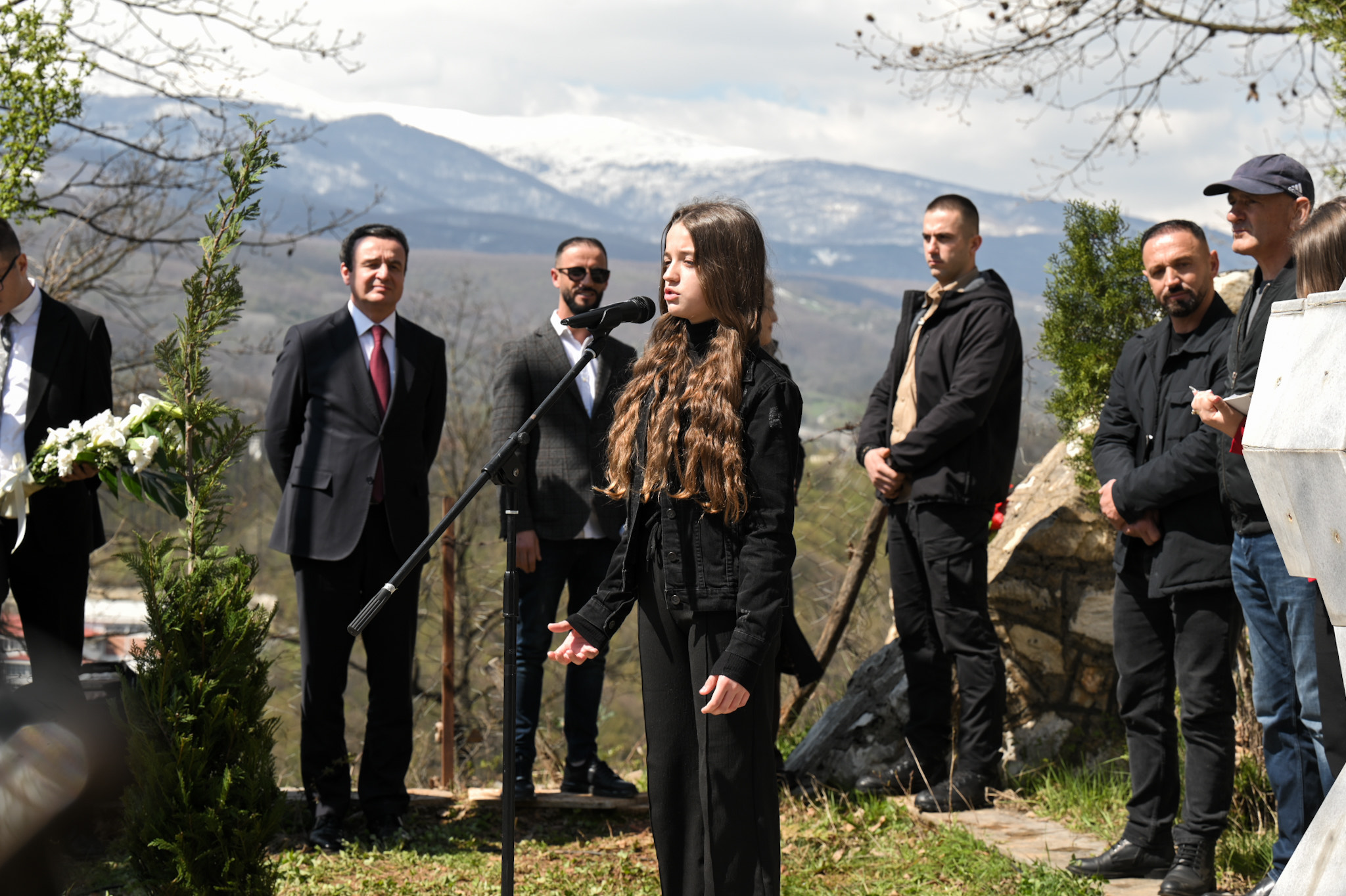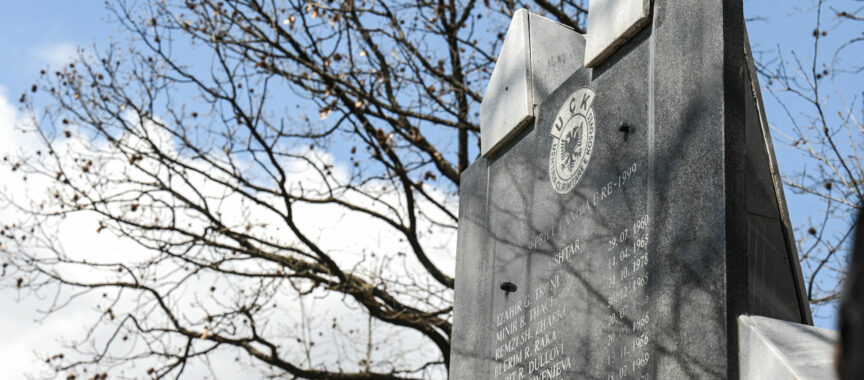Kacanik, 9 April 2025
Following the tributes at the “Martyrs of Kosharja” Memorial Complex, the Prime Minister of the Republic of Kosovo, Albin Kurti, continued on to Kacanik to honor the martyrs and heroes on the 26th anniversary of their fall.
On 9 April 1999, Kacanik was surrounded by Serbian military and police forces, who attacked the civilian population and shelled it from all sides. In the battles in Lagjja e Re and in Rakoc, 28 soldiers of the Kosovo Liberation Army fell heroically, and 28 martyrs were killed.
He first paid tribute and participated in the commemorative event in Lagjja e Re, where he said that they had come to honor all the martyrs and heroes of the battles of Kacanik.
“We honor in particular the four female martyrs who fell while defending the civilian population. We remember the four KLA soldiers who fell in direct confrontation with the enemy forces of Serbia: Emsale Frangu, Jehona Raka, Lumnije Raka and Mukadeze Lika Muhaxheri. Today marks 26 years since their fall. Each and every one of them is remembered by all of us,” declared the Prime Minister in his address.
He recalled that the month of April is a month of remembrance for the victims of massacres, crimes, and genocide committed by Serbia in Kosovo. “We remember with reverence and sorrow the civilians who were killed and forcibly disappeared during the first week of April 1999 in: Rezalle of Drenica, Lybeniq of Peja, Çabrat of Gjakova, Fushe Kosove, Sopi of Suhareka, the horrific massacre of the Vejsa family in Gjakova, the massacre in Llovcë of Gjilan, Kralan of Gjakova, Reznik of Vushtrri, Mojstir and Cërcë of Istog, Popove of Podujeva, the mountains of Çabiq, Polac, and the village of Rashiq in Peja,” stated the Prime Minister, adding that the prosecution and the justice system in Kosovo, despite improved conditions, higher salaries, and a doubling of investigators, are not as active as they could be, let alone as active as they should be.
With my commitment to preserving the legacy of the liberation war and honoring the sacrifices of our people for freedom, the Prime Minister continued, we are all working together, with determination, for a Kosovo of justice, peace, and progress:
“For the first time since the end of the war, we have approved the Strategy for Transitional Justice. We have consolidated the legal framework and strengthened the institutional capacities for investigating and prosecuting war crimes. The documentation of all the monstrous crimes committed by genocidal Serbia in Kosovo is being carried out by the Institute for War Crimes in Kosovo. For the first time, the population census conducted at the end of last year in the Republic of Kosovo has also included the recording of losses and suffering experienced during the war”.
From Lagjja e Re, Prime Minister Kurti continued to Rakoc in Kacanik, where he will participate in the commemorative event organized there.
Full speech of Prime Minister Kurti:
Dear family members of the martyrs and heroes of Kacanik,
Honorable members of the Assembly of the Republic of Kosovo,
Ministers and Deputy Ministers, representatives of state institutions,
Honorable Mayor of the Municipality of Kacanik, Mr. Besim Ilazi,
Honorable directors and members of the Municipal Assembly,
Honored invalids and veterans of the Kosovo Liberation Army,
Honored representatives of associations that emerged from the liberation war,
Esteemed ladies and gentlemen, brothers and sisters,
We come from Kosharja, where the 26th anniversary of the epic battle is being honored, a battle that broke the border dividing Albanians and gave extraordinary momentum to the liberation of Kosovo.
We are here in Kaçanik to honor the memory of the men and women who left behind an unmatched legacy of courage and love for the homeland. On the morning of 9 April 1999, Kaçanik awoke surrounded by the military and police forces of Serbia, who attacked the civilian population and shelled it from all sides. In the battles in Lagjja e Re and in Rakoc, 28 soldiers of the Kosovo Liberation Army fell heroically, and 28 martyrs were killed.
We are here to honor all the martyrs and heroes of the battles of Kacanik. We honor in particular the four female martyrs who fell while defending the civilian population. We remember the four KLA soldiers who fell in direct confrontation with the enemy forces of Serbia: Emsale Frangu, Jehona Raka, Lumnije Raka and Mukadeze LikaMuhaxheri. Today marks 26 years since their fall. Each and every one of them is remembered by all of us, always.
We are in the Kaçanik of 7 September 1990, where the delegates of the Assembly of Kosovo adopted the Constitution of the Republic of Kosovo and declared the Republic of Kosovo as a democratic state of the Albanian nation and of members of other nationalities and minorities, its own citizens, with a unique, inalienable, and indivisible territory.
The Constitution of Kaçanik, in addition to being the foundation stone of the Republic of Kosovo’s statehood, is the triumph of the popular legitimacy of the free civic will over the illegitimate and oppressive regime of Serbia. This free and lawful will was crowned by the liberation war of the Albanian people, organized and led by the Kosovo Liberation Army, for unity and for freedom, for the liberation of the Republic of Kosovo from Serbian occupation and rule, on 12 June 1999. It took nearly nine years from the Constitution of Kaçanik to reach the liberation of Kosovo, and again, nearly nine years from the liberation of Kosovo to reach the declaration of independence.
Dear sisters and brothers,
We are in April, the month of remembrance for the victims of massacres, crimes, and the genocide committed by Serbia in Kosovo. We remember with reverence and sorrow the civilians who were killed and forcibly disappeared during the first week of April 1999 in: Rezalle of Drenica, Lybeniq of Peja, Çabrat of Gjakova, Fushe Kosove, Sopi of Suhareka, the horrific massacre of the Vejsa family in Gjakova, the massacre in Llovcë of Gjilan, Kralan of Gjakova, Reznik of Vushtrri, Mojstir and Cërcë of Istog, Popove of Podujeva, the mountains of Çabiq, Polac, and the village of Rashiq in Peja.
To address the war crimes committed, we have developed the legal basis that was lacking for many years and have increased the capacities of institutions for their effective handling.
For the purpose of investigation and truth-seeking, with the newly approved structure of the Kosovo Police, war crimes investigations have been elevated to the directorate level, now staffed with 41 investigative officers, up from 19 previously. With the increase in the number of investigators, the number of witnesses interviewed for war crimes is also growing.
In the service of justice for these crimes, we have enacted the necessary legal changes that allow the trial in absentia of Serbian war criminals.
Since 2021, the department for war crimes investigation has increased the number of indictments filed. In 2023, 15 indictments for war crimes were filed, and 68 individuals were charged. During the past year, that is, 2024, 14 indictments were filed against 25 Serbs suspected of war crimes. Of these, six indictments were issued in absentia for 11 Serbs, while seven others were filed against 13 arrested Serbs.
More has been done than in the past, but it is still far from enough, considering how much remains to be done. The prosecution and the justice system in Kosovo, despite improved conditions, higher salaries, and a doubling of the number of investigators, are not as active as they could be, let alone as active as they are needed.
With my commitment to preserving the legacy of the liberation war and honoring the sacrifices of our people for freedom, we are all working together, with determination, for a Kosovo of justice, peace, and progress.
For the first time since the end of the war, we have approved the Strategy for Transitional Justice. We have consolidated the legal framework and strengthened the institutional capacities for investigating and prosecuting war crimes.
The documentation of all the monstrous crimes committed by genocidal Serbia in Kosovo is being carried out by the Institute for War Crimes in Kosovo. For the first time, the population census conducted at the end of last year in the Republic of Kosovo has also included the recording of losses and suffering experienced during the war.
Our responsibility to the truth, to history, and to justice for the fallen is everlasting, just as is our commitment to the development of our Republic: we, as a government, the institutions as a whole, and the entire society of the people.
May the memory of the martyrs and heroes of our nation in Kaçanik and everywhere be eternal!
Glory!
Last modified: April 17, 2025
